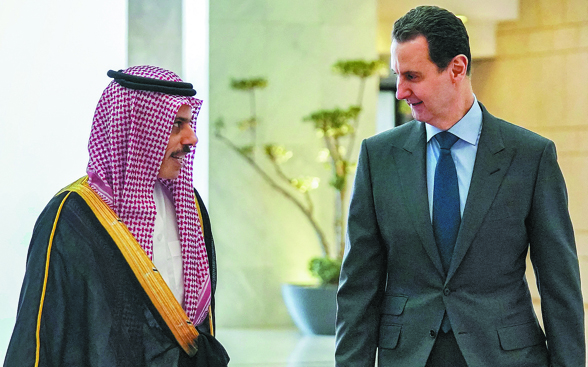Warmer relations with neighbours and fewer terrorist incidents are two factors, according to experts.
Analysts contend that Syria’s improved relations with its Arab neighbours and a decline in terrorist attacks in the war-torn country support the argument for the withdrawal of American troops.
They claimed that the US’ continuous exploitation of Syrian resources shows a general insensitivity to the plight of a country without the ability to develop its own resources.
On April 22, the Syrian state-run SANA news agency reported that the US occupying troops had carried out further looting and plundering of Syrian resources by transporting dozens of tankers full of stolen oil from Al-Jazeera fields towards Iraqi territory.
US President Joe Biden’s administration is being urged to withdraw US troops from Syria by Syrian leaders. On April 4, a Newsweek article reported fresh diplomatic efforts that point to a change in the regional geopolitical landscape.
Demands for a political solution to the Syrian issue are also growing in the meantime.
With the Syrian government opposing US military intervention, the presence of an estimated 900 US personnel has been a contentious subject. The Syrian Democratic Forces, a local counterterrorism partner of the US, are supported by 900 US forces under a mandate to help them battle the ISIL, also known as the Islamic State of Iraq and Syria, IS, or Daesh.
Getting rid of Syrian President Bashar al-Assad “in favour of a government that is more or less pro-Western” that does not pose a threat to the US or its allies, especially Israel,” according to Nagapushpa Devendra, a West Asia analyst and research scholar at the University of Erfurt in Germany, was one of the US’s two main goals in Syria. The other was the eradication of terrorism.
The US no longer needs to worry about its allies, according to her, and Tel Aviv “could defend itself” now that the Gulf nations are driving the negotiations to bring Syria back into the Arab fold.
According to Assad, US occupying forces have switched their military station in the strategically important Al-Tanf region of the Arab nation, which is close to borders with Iraq and Jordan into a bastion for terrorists.
Assad questioned the necessity of stationing US troops in the desert and claimed that the country houses tens of thousands of terrorists along with their families in barracks.
“Syria no longer needs US troops to provide or protect the security for its territory,” said Devendra Banerjee. “The basic goal was accomplished and ISIS capabilities and territories under their control today are a fraction of what they used to be.”
A convoy of 77 vehicles, including 32 oil tankers, is said to have been taken from Syrian fields on April 11 through the Al-Waleed crossing, as well as six military armoured vehicles from the Hasaka area.
According to Ahmad Ghouri, director of internationalisation at the School of Law, Politics, and Sociology at the University of Sussex in the UK, at least 40% of all intrastate conflicts in the last 60 years have some connection to natural resources.
“With the continued presence of US armed forces in Syria, the conflict in Syria has become one of such conflicts where the US is undoubtedly an occupying power,” claimed Ghouri.















